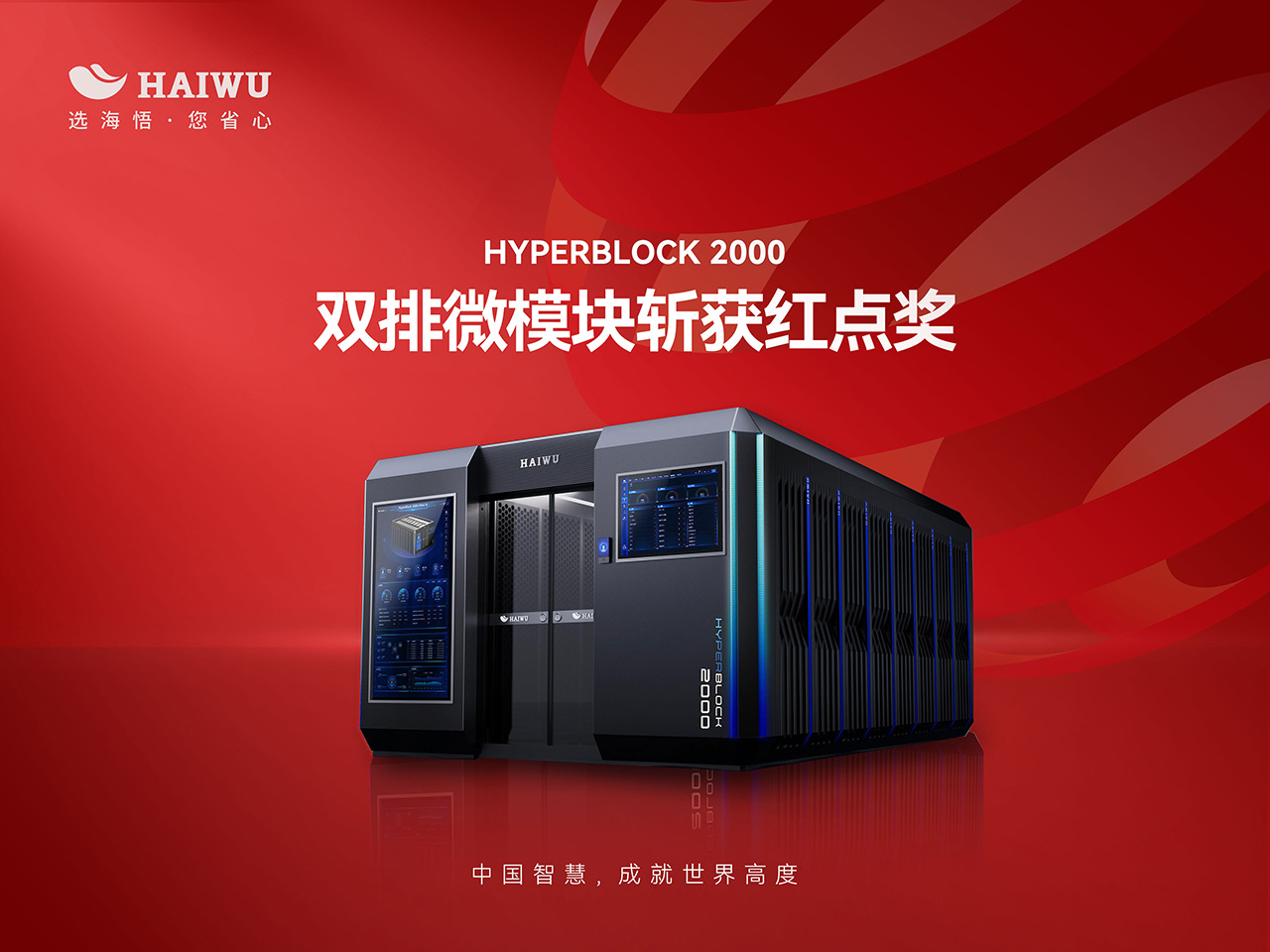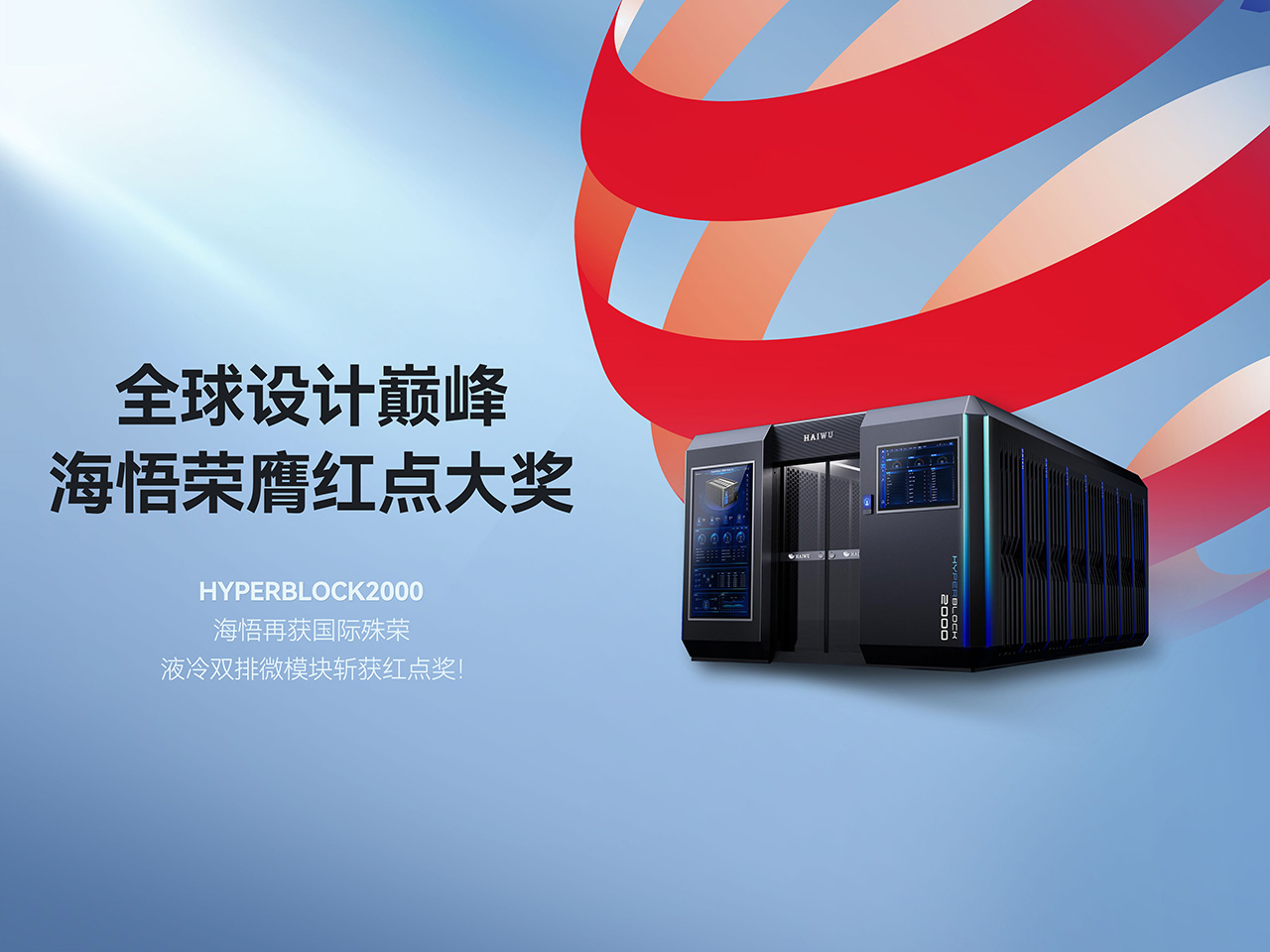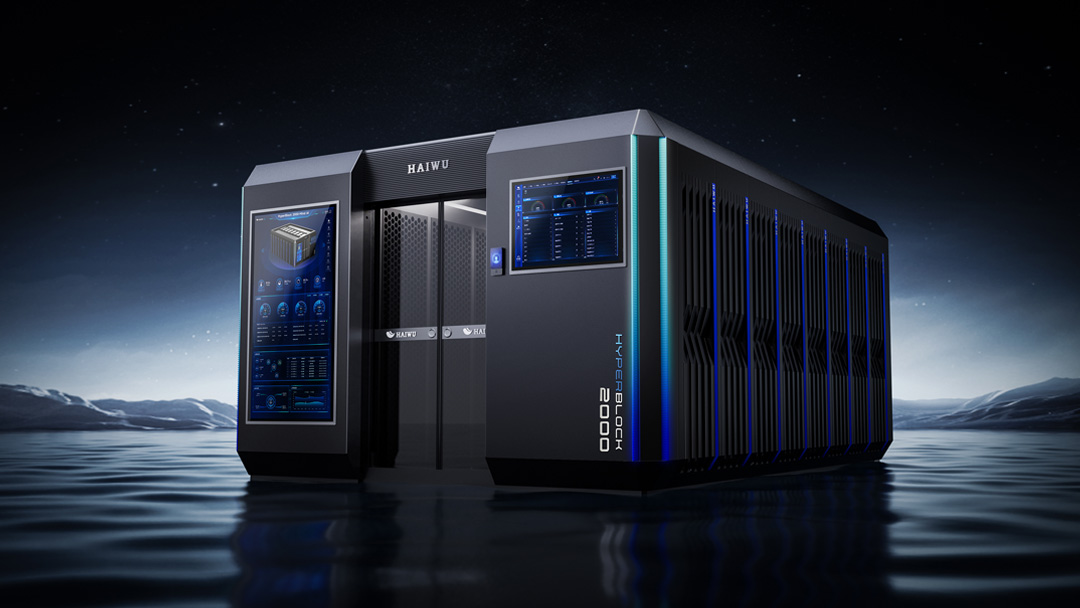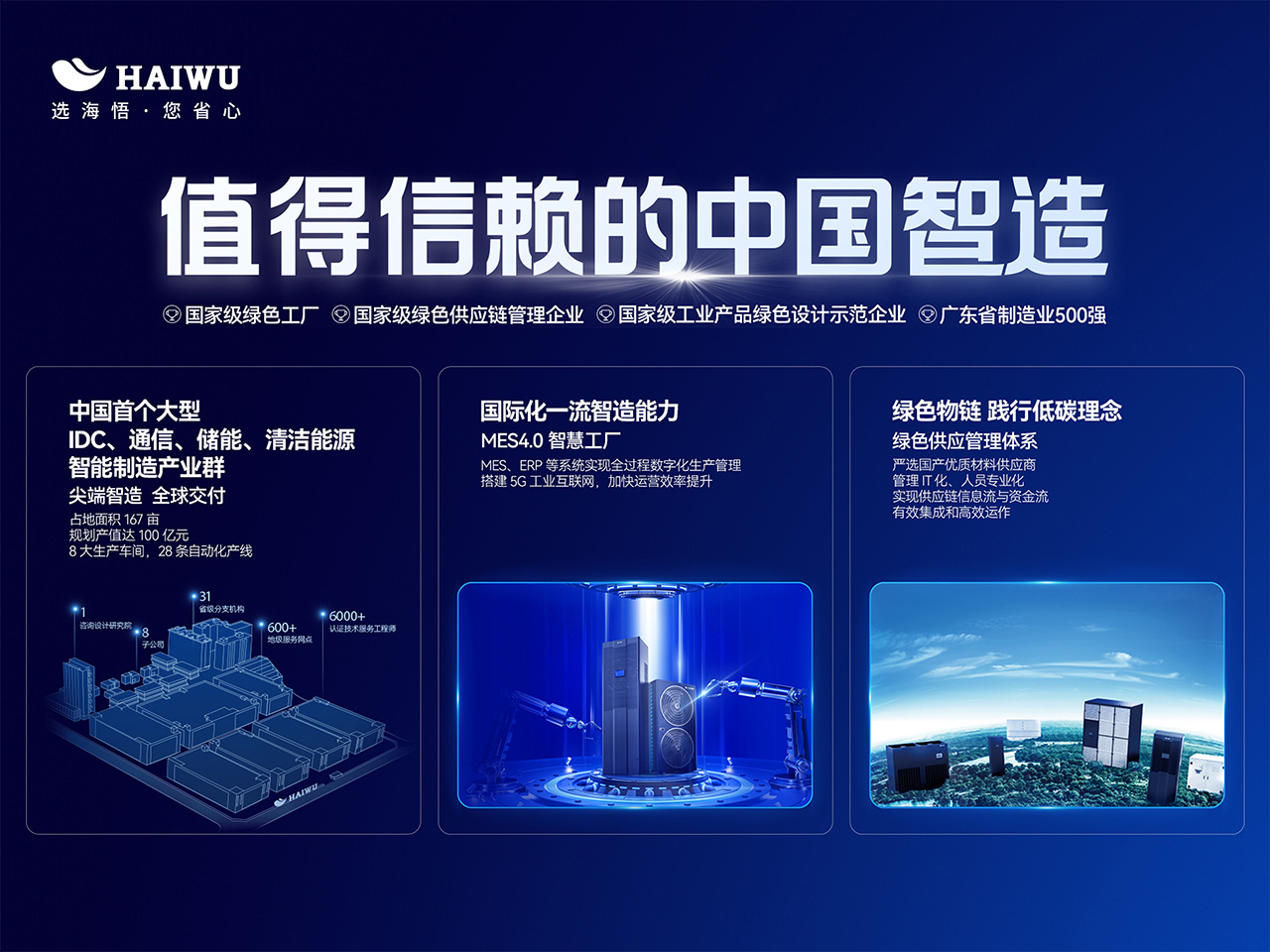The 2025 German Red Dot Design Award was announced, and Haiwu, a Chinese digital energy company, won the crown with a liquid-cooled double-row micromodule, becoming the first Chinese data center liquid cooling technology product to win this award. This breakthrough not only breaks the monopoly of international brands on top industrial design awards, but also provides a replicable "Chinese paradigm" for the low-carbon and efficient transformation of the global data center industry with the innovation logic of "technology + design".

The game between computing power and energy consumption: How does liquid cooling technology become the key to breaking the game?
Driven by scenarios such as AI large model training and autonomous driving simulation, the power density of data centers is increasing at a rate of 25% per year, and some intelligent computing centers have reached 80kW/cabinet. In such scenarios, traditional air-cooled systems not only cause equipment to be reduced due to insufficient heat dissipation efficiency, but also become a "roadblock" on the road to carbon neutrality due to high energy consumption (PUE>1.6). The innovation of Haiwu liquid-cooled double-row micromodules revolves around the three core pain points of "heat dissipation efficiency, deployment efficiency, and energy efficiency ratio":
1. Modular design: make complex systems "plug and play"
Haiwu highly integrates the hardware equipment and software management and control of the liquid cooling system into the standardized module, and realizes "the module is completed as soon as it leaves the factory" through factory prefabricated production. When deployed on-site, there is no need for a professional construction team, only the foundation installation is required to operate, saving 70% of on-site man-hours compared to traditional solutions. This "product-oriented thinking" completely changes the old model of relying on customized engineering for liquid cooling systems, making it possible to quickly implement high-density computing power scenarios.
2. Cold plate liquid cooling + intelligent control: redefine the boundaries of energy efficiency
Through the direct heat conduction between the cold plate and the chip, the Haiwu solution increases the heat dissipation capacity to 1500W/m², which is 5 times that of traditional air cooling; With the self-developed AI group control algorithm, the coolant flow rate and temperature can be dynamically adjusted according to the computing power load, achieving the industry-leading level of PUE 1.12. In the actual measurement of the intelligent computing center of an Internet company, the solution reduced the annual power consumption of a single cabinet from 280,000 kWh to 160,000 kWh, which is equivalent to the carbon sink of planting 800 firs.

Thirty years of sharpening a sword: Haiwu's technical climbing road
Haiwu's success is not accidental, but the inevitable result of 30 years of focus on data center temperature control:
- R&D investment: A total of more than 2 billion yuan has been invested in R&D funds to establish cutting-edge R&D platforms such as liquid-cooled materials laboratories and fluid mechanics simulation centers.
- Talent pool: Establish a 300-person R&D team led by doctors, of which 50% have more than 10 years of industry experience;
- Scenario verification: From the landing of the first liquid-cooled prototype in 2018 to the realization of large-scale commercial use in 2023, Haiwu Solution has gone through 5 generations of technology iterations and completed a total of 500,000 hours of rigorous testing in more than 100 projects.
These accumulations not only allow Haiwu to master the core code of liquid cooling technology, but also enable it to transform the technology into practical commercial value. At present, Haiwu liquid-cooled double-row micromodules have served in many fields such as finance, Internet, and scientific research, with a customer repurchase rate of 92%.

The industrial logic behind the Red Dot Award: from "technology output" to "standard leadership"
This award marks the leap of Chinese enterprises from "products going overseas" to "technical standards going overseas":
1. Full-stack technology output to build a global supply chain
Haiwu liquid cooling module adopts an open architecture design, which can be compatible with different brands of servers, switches and other equipment, reducing customer technology lock-in costs. At present, its products have entered Southeast Asia, the Middle East and other markets, and in a project of an AI computing center in Singapore, Haiwu solution helped customers shorten the construction period by 40% and reduce energy consumption costs by 35%, becoming a benchmark for local green computing power.
2. Participate in the formulation of international standards and enhance the voice of the industry
As the Chinese representative of ISO/IEC JTC1/SC41 (International Organization for Standardization Artificial Intelligence Sub-Technical Committee), Haiwu is promoting the formulation of international standards related to liquid cooling technology. The draft "Liquid Cooling System for Data Centers - Design and Installation" led by him has been widely recognized by the United States, Europe, Japan and other countries and regions, and is expected to become a general specification for liquid cooling technology around the world.
Future prospects: How does liquid cooling technology reshape the global computing power landscape?
Faced with the opportunity that the global liquid-cooled data center market will exceed US$20 billion by 2027, Haiwu has formulated a "three-dimensional" development strategy:
- Technical dimension: Develop a hybrid architecture of immersion liquid cooling and cold plate liquid cooling to support the ultra-high temperature control requirements of 120kW / cabinet;
- Ecological dimension: Establish a "liquid cooling technology industry alliance" to cooperate with upstream and downstream enterprises to create a complete chain from chip heat dissipation to energy recovery;
- Social dimension: Through the "Green Computing Power Public Welfare Program", we provide liquid cooling technology training and equipment support to developing countries to help bridge the global digital divide.

From the "Oscar" of industrial design to the "green engine" of global computing power, Haiwu proved with the Red Dot Award that when technological innovation is deeply combined with the needs of human sustainable development, China's solution can not only solve local problems, but also become a public good shared by the world. Driven by intelligent computing and carbon neutrality, Haiwu is using liquid cooling technology as a brush to outline a green future belonging to China's intelligent manufacturing on the global computing power map.

